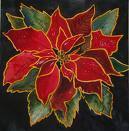by
Joan Trombetti, Writer | December 23, 2008
The holidays are once again upon us and as usual there are some myths that just won't go away. Thank goodness for Rachel Vreeman, MD, and Aaron Carroll, MD, assistant professors of pediatrics at the Indiana University Medical School who tell it like it really is.
For example, sugar doesn't make for hyperactive kids no matter what anyone has told you in the past. According to Vreeman and Carroll your out-of-control child may have a problem, but sugar is not the cause.
Another rumor that runs rampant around the winter holiday is that suicide is higher than at any other time of year. Not true. As a matter of fact, according to Vreeman and Carroll, summertime has the highest rate.



Ad Statistics
Times Displayed: 174778
Times Visited: 3187 For those who need to move fast and expand clinical capabilities -- and would love new equipment -- the uCT 550 Advance offers a new fully configured 80-slice CT in up to 2 weeks with routine maintenance and parts and Software Upgrades for Life™ included.
Don't try this at home - but the doctors also found that there is no proof ingesting poinsettia leaves makes for a medical emergency.
Wearing hats is supposed to be good idea because it is where most body heat is retained - again, myth. Vreeman and Carroll say that "any uncovered part of the body loses heat and reduces the core body temperature proportionately."
Feast away for the holidays day or night, because it's how many calories you eat that will pack on the pounds - not what time of day you eat them.
Cure for hangover? Short of not drinking at all or in moderation, Drs. Vreeman and Carroll say there are none.
Look for Drs. Vreeman and Carroll health myths in book form next year. Their truths about holiday health myths now appear online in BMJ, formerly the British Medical Journal.

